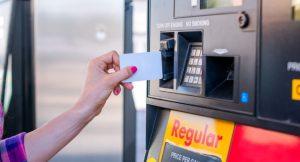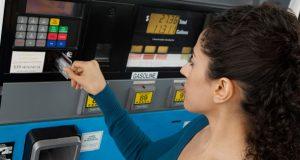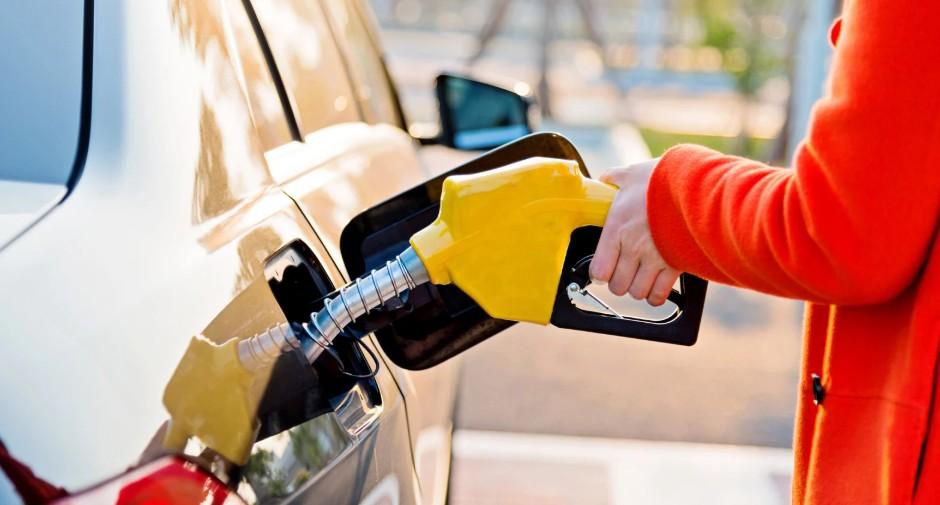Managing fuel costs is a priority for businesses that rely on vehicles, whether it’s a small company with a few vans or a large logistics operation with a fleet of HGVs. With fuel prices fluctuating and administrative tasks piling up, having an efficient way to track and control fuel expenses is essential.
Fuel cards offer a secure, cost-effective, and convenient way for businesses to handle fuel payments. They provide discounted fuel rates, help with VAT reclaims, and simplify financial tracking. Whether you are a business owner, fleet manager, or an independent truck driver, using a fuel card can make managing fuel expenses much easier.
What Are Fuel Cards and How Do They Work?
A fuel card works much like a debit or credit card but is specifically designed for purchasing fuel and vehicle-related expenses. Instead of drivers paying out of pocket and submitting receipts later, fuel cards allow them to refuel at designated petrol stations with the transaction automatically recorded in a centralised system.

Businesses that use fuel cards benefit from consolidated invoicing, meaning all fuel purchases are listed in a single statement rather than individual receipts.
This makes expense tracking more manageable and reduces the time spent on fuel administration. Depending on the fuel card provider, businesses can pay either weekly or monthly, helping with cash flow management.
Fuel cards are accepted at thousands of petrol stations across the UK, including Shell, BP, Esso, and Texaco, with some providers offering access to multiple brands within the same network.
| Fuel Card Provider | Coverage | Best For | Additional Benefits |
| Shell Fuel Card | Nationwide | Large fleets | Carbon offsetting options |
| BP Fuel Card | Extensive UK network | SMEs & large businesses | Discounts on fuel |
| Esso Fuel Card | Motorways & urban areas | Fleet managers | Flexible payment options |
| Texaco Fuel Card | Regional businesses | Small businesses | No minimum usage fees |
Key Benefits of Fuel Cards for Businesses
One of the biggest advantages of fuel cards is cost savings. Many providers offer fixed weekly pricing, allowing businesses to predict fuel expenses and avoid the impact of sudden price hikes. Others provide pump price discounts, ensuring that businesses pay a lower rate than the standard pump price at selected stations.
Another important benefit is better expense management. Keeping track of individual fuel receipts can be time-consuming and prone to errors.
With fuel cards, businesses receive detailed invoices, making it easier to monitor fuel usage per driver or vehicle. These invoices also help streamline VAT reclaims, as they meet HMRC requirements, ensuring businesses don’t miss out on potential tax savings.
Security is a significant concern for many businesses, and fuel cards offer better protection than cash or company credit cards.
Businesses can set spending limits per driver, ensuring that fuel cards are used strictly for business purposes. Many cards also come with PIN protection and fraud monitoring systems, reducing the risk of misuse.
Convenience is another major advantage. Many fuel cards are accepted at thousands of petrol stations across the UK, allowing businesses to refuel without worrying about limited network coverage. Some cards even include toll payments and vehicle-related expenses, making them even more versatile.
Who Can Benefit from Fuel Cards?
Fuel cards are useful for businesses of all sizes, from small enterprises to large fleet operators. For small businesses, managing vehicle expenses can be challenging.
Without a structured fuel payment system, costs can quickly become difficult to control. A fuel card helps by offering discounted fuel rates and centralised expense tracking, reducing financial strain and simplifying admin work.
Fleet managers benefit from fuel cards by gaining greater control over fuel consumption. With real-time tracking, they can monitor vehicle fuel usage and detect inefficiencies. Fleet fuel management becomes easier when refuelling is limited to authorised locations, preventing unauthorised fuel purchases.
Independent truck drivers and couriers also find fuel cards highly beneficial. Fuel costs make up a significant portion of their expenses, and access to discounted fuel rates helps reduce overall running costs.
Additionally, the automated invoicing system ensures that VAT reclaims are processed efficiently, avoiding lost receipts and paperwork hassles.
How to Choose the Best Fuel Card for Your Business?

Choosing the right fuel card depends on several factors, including business size, vehicle type, fuel consumption, and refuelling locations.
There are two main types of fuel cards: fixed-price fuel cards and pump-price fuel cards. Fixed-price fuel cards provide a consistent rate for fuel each week, making budgeting easier. Pump-price fuel cards, on the other hand, charge the price displayed at the pump but may include additional discounts.
Businesses should also check the fuel station network coverage to ensure that the card can be used at the most convenient locations. Some cards cover multiple fuel brands, while others are limited to specific petrol stations.
Fees and hidden costs are another factor to consider. Some fuel cards come with monthly admin fees, transaction fees, or minimum usage requirements. Before choosing a provider, it’s important to check whether the potential savings outweigh any additional charges.
How to Apply for a Business Fuel Card?
Applying for a fuel card is a straightforward process. The first step is selecting the right provider based on your business needs, including fuel consumption, preferred fuel stations, and required additional benefits.
Once a provider is chosen, the application process typically involves submitting business details, such as company name, fleet size, and expected fuel usage.
Approval times vary, but most fuel card providers issue cards within a few days. Once received, businesses can distribute the cards to their drivers and start monitoring fuel expenses through an online account management system.
Fuel card providers usually offer dedicated support teams to help businesses with account management, lost card replacement, and security features.
Conclusion
Fuel cards provide a cost-effective, secure, and convenient solution for managing fuel expenses. Whether you’re a business owner, fleet manager, or independent driver, using a fuel card helps reduce fuel costs, improve expense tracking, and simplify VAT reclaims.
By choosing the right fuel card, businesses can benefit from discounted rates, improved cash flow management, and better security. Fuel cards are not just a payment method, they are a smart investment for any business looking to optimise fuel management.
FAQs About Fuel Cards for Businesses
Are fuel cards better than credit cards for fuel purchases?
Yes! Fuel cards offer discounted fuel prices, detailed invoices for VAT reclaims, and spending controls, which credit cards do not provide.
Can I set limits on employee fuel usage?
Absolutely. Many fuel card providers allow businesses to set spending limits to prevent unauthorised fuel purchases.
Which fuel card is best for small businesses in the UK?
The best fuel card depends on the business’s fuel usage, preferred refuelling locations, and network coverage needs. Some providers focus on small businesses, while others cater to large fleets.
Do fuel cards help with VAT reclaims?
Yes. Fuel cards provide HMRC-compliant invoices, making it much easier to reclaim VAT without needing to collect individual receipts.









Leave feedback about this